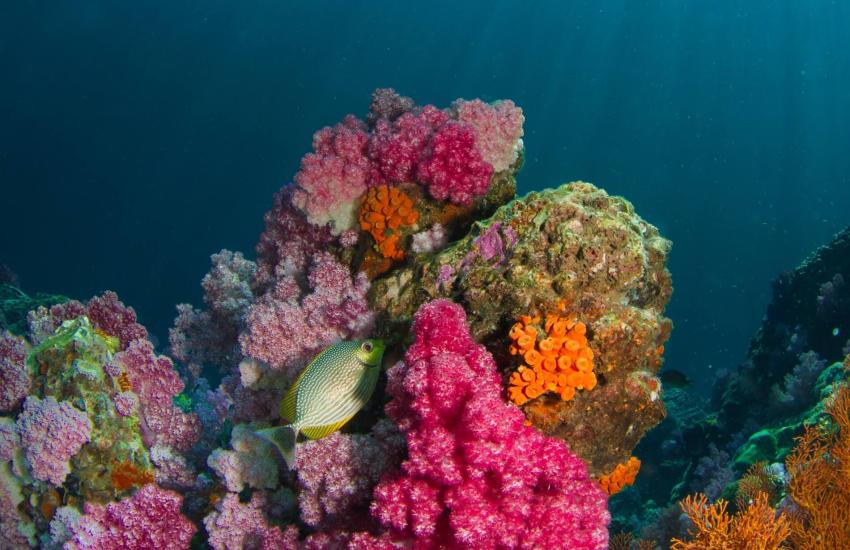Breadcrumb
-
Guidebook
-
Marine Conservation
-
Coral Reef Conservation: Protecting and Restoring Fragile Ecosystems
Coral Reef Conservation: Protecting and Restoring Fragile Ecosystems

The sustainability of these diverse and delicate ecosystems depends on coral reef protection. Due to human activity and environmental changes, coral reefs are seriously threatened, necessitating cooperation between scientists, governments, local populations, and diverse stakeholders. The following are some crucial elements and tactics related to coral reef conservation:
Protection and Management of Coral Reefs
Establishing and effectively managing marine protected areas (MPAs) is essential for the conservation of coral reefs. MPAs can provide legal protection, regulate human activities, and enforce sustainable practices within designated areas. By implementing fishing restrictions, controlling pollution, and managing tourism activities, MPAs can help reduce the direct and indirect impacts on coral reefs, allowing them to recover and thrive.
Sustainable Fishing Practices
Combat the threats posed by overfishing and destructive practices to coral reefs by actively participating in sustainable fishing initiatives. Enforcing catch limits, regulating gear use, and promoting responsible fishing methods are crucial steps for reef conservation. Join our volunteer programs to contribute to the adoption of sustainable practices, allowing fish populations to recover and ensuring a healthy balance within the coral reef ecosystem. Be part of the solution – volunteer today for sustainable fishing and the preservation of coral reefs.
Pollution Reduction
Reducing pollution, especially nutrient runoff and chemical contaminants is crucial for the health of coral reefs. Implementing proper wastewater management, controlling agricultural runoff, and promoting responsible use of fertilizers and pesticides can minimize the influx of harmful substances into reef environments. By reducing pollution, the risk of coral disease outbreaks and coral bleaching events can be minimized.
Climate Change Mitigation
Make a meaningful contribution to secure the long-term survival of coral reefs by actively participating in climate change initiatives through volunteering. It is crucial to take steps such as reducing emissions causing global warming and striving to meet international climate targets. Your active involvement is vital in lessening the adverse effects of rising temperatures and increasing ocean acidity on coral reef ecosystems. Join us in the collective effort to substantially diminish the impacts of climate change by supporting renewable energy, endorsing climate-friendly legislation, and fostering sustainable behaviors. Volunteer today to play a positive role in preserving coral reefs and promoting the overall health of our oceans.
Restoration and Rehabilitation
Restoration and rehabilitation projects can help revive degraded coral reef areas. Techniques such as coral gardening, where coral fragments are grown in nurseries and then transplanted onto damaged reefs, can aid in the recovery of coral populations. Active restoration efforts, combined with addressing the underlying threats, can enhance the resilience and recovery potential of coral reefs.
Public Awareness and Education
Increasing public awareness and providing education to communities about the significance of coral reef conservation is essential. By emphasizing the value of coral reefs, the challenges they confront, and the actions that individuals can take to help protect them, awareness campaigns can cultivate a sense of accountability and care. Educational efforts directed at local communities, schools, and tourists can encourage sustainable behaviors and minimize human disturbances to coral reefs.

